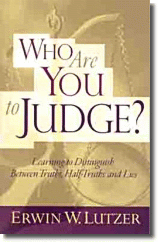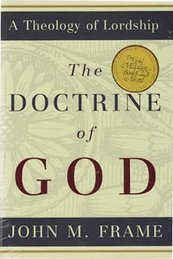For whom did God die?
In my previous blog entry, I reflected on John 3:16 and its implication on the extent of Christ's work on the Cross.This blog will continue with the question of ‘for whom did God die’ still exists. For the Arminians, redemption is universal in scope (because God loves everyone) but not effective for every person (because not everyone responded with faith). For the Calvinist, redemption is particular in scope (because not everyone is chosen/elected), but always effective for the elect. The Arminians accused Calvinists that they are not fair, they say Calvinist attempt to limit God’s atonement. However, upon closer examination, one can see that their accusation has not been fair or accurate. Calvinists are not trying to make God look bad. Just as there is no contradiction between a loving God and the reality of hell, there is no contradiction between a loving God and the doctrine of election.
Firstly, if the redemption is universal in scope but not effective for every person (since Arminians believe we can reject salvation), the Arminians are also placing a limit on God’s atonement. There is no difference on the number of people saved, despite the Arminians’ claim to liberality. For the Arminians, it is Man choose God; for the Calvinist, it is God choose Man. From John 3:16 “that whoever believes in Him shall not perish”, it is also obvious that not everyone would be saved. Though the Arminian emphasized free will, the Calvinist’s view of irresistible grace is much more gracious than the Arminian’s belief of freewill salvation.
Secondly, “that whoever believes in Him shall not perish” (John 3:16) tells us that the gospel is to be preached to everyone. We should remind ourselves that election is not "information" from which we are to decide whether or not to respond to God in faith, or worry whether or not we are elect, or use as an excuse if we decide we are reprobate. Rather, it is the Gospel, the Good News that God has chosen to make salvation available in Christ by faith to all who respond and that ultimately we need not depend upon our own resources (since they are never sufficient) but upon the grace of God alone. How can one say that God is unfair when one cannot be sure that God did not elect him/her? If one thinks that God is unfair, they can believe in the Gospel and persevere!
Thirdly, there is the question of infant baptism. I believe that infant baptism supports the biblical view of election (thus particular atonement) based on God’s grace and divine sovereignty. The practice the baptism of infants in many of the Protestant Churches shows that John 3:16 “For God so loved the world” is not untrue as God saves the elect (such as infant) even before he can believe. Methodists (Wesleyans & Arminians) believe that God elect based on foreknowledge that the person will believe, but what if the infant are not able to live to an age (maybe to accidents or illnesses) where he can believe? Under the Arminian theological framework, how does God treat these cases? For the Calvinist (Presbyterians & Reformed Churches), the practice the baptism of infants does not face this problem since an infant is saved because it is based on God’s election and covenantal promise.
However, Methodists in Singapore practice infant baptism, as it is seen as ‘a sign of the child's belonging to the Church of God’1. Methodists in Singapore believed that:
It is the grace of God which even enables the believer to repent and receive God's grace. It is the grace that enables the believer to repent and receive God's grace. It is the grace that enables the believer to grow in faith and in doing God's will. [See A Methodist view of the Sacraments and Observances, Section on ‘Holy Baptism’ at http://www.trac-mcs.org.sg/discipleship/ms1.htm. Emphasis is bold is mine]
Thus, it seems that local Methodists’ view is much closer to the Calvinist (at least on paper!); they believe that infants (& all elected) are still saved because of God’s grace and sovereignty, and not because of God’s foreknowledge that we (including infants) would believe.
In his Institutes, Turretin distinguishes between those who have "the saving habit of acting faith" (or "actual faith") and those who have faith in its "principle and root," which an infant can possess since he "can have the Holy Spirit, with which to believe in his own time" (Institutes 19.20.19). Likewise, Junius says, "regarding the species of faith, it is to be considered both with regard to its first act and (as they say) its second." Infants are capable of faith as it in its first act and thus "it false to argue that infants are completely incapable of faith," though this is "God's secret and hidden thing" (Theses Theologicae 51.7). Johann Heinrich Alsted (1588-1638) similarly maintains that while infants may be "destitute of what is called 'actual faith', they are not on that account destitute of all faith...Faith in principle and seed, and virtually, is to be attributed to elect infants" (Theologia, Scholastica Didactica, 785).
The example of David’s situation in the OT clearly shows this. When his infant child died, David is given the confidence that he will see that child again in heaven. This story of David and dying child gives a tremendous consolation to parents who have lost infants to death. From David’s strong belief, it can also be seen that it is not by the infants’ innocence but by God’s grace that they are received into heaven. We come into this world with a sin nature, and so the baby that dies, dies as a sinful child. And when that child is received into heaven, he is received by grace. If a child is elected, he would surely be saved.
1 The Articles of Religion in the "Methodist Discipline" (1976, para 17) clearly state: "The baptism of young children is to be retained in the church." The objective work of God is available to infants. The child is initiated into the Body of Christ in a spiritual manner. An infant who is baptized has the parents or others as sponsors or godparents. At the baptism service they hold themselves responsible for safeguarding the welfare of the child, especially in its spiritual nurture. The congregation itself is held responsible for the Christian nurture of the child. The baptized child is enrolled as a preparatory member of the church. Infant baptism is:
-
a dedication of the child to God
-
a pledge of the parents and others to carry out their duties in the child's Christian nurture.
-
a sign of the child's belonging to the Church of God
-
a mark (seal) of the Holy Spirit's work in the child.
In every baptism there is the establishment of a mystical union of the baptized person with Christ. Here again it is an act of faith that God can do more than we expect through His grace and might. (Mark 10:13-16). [Source: A Methodist view of the Sacraments and Observances, http://www.trac-mcs.org.sg/discipleship/ms1.htm]


